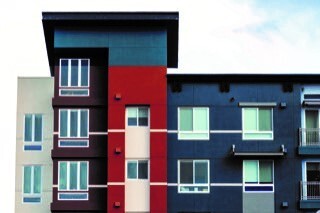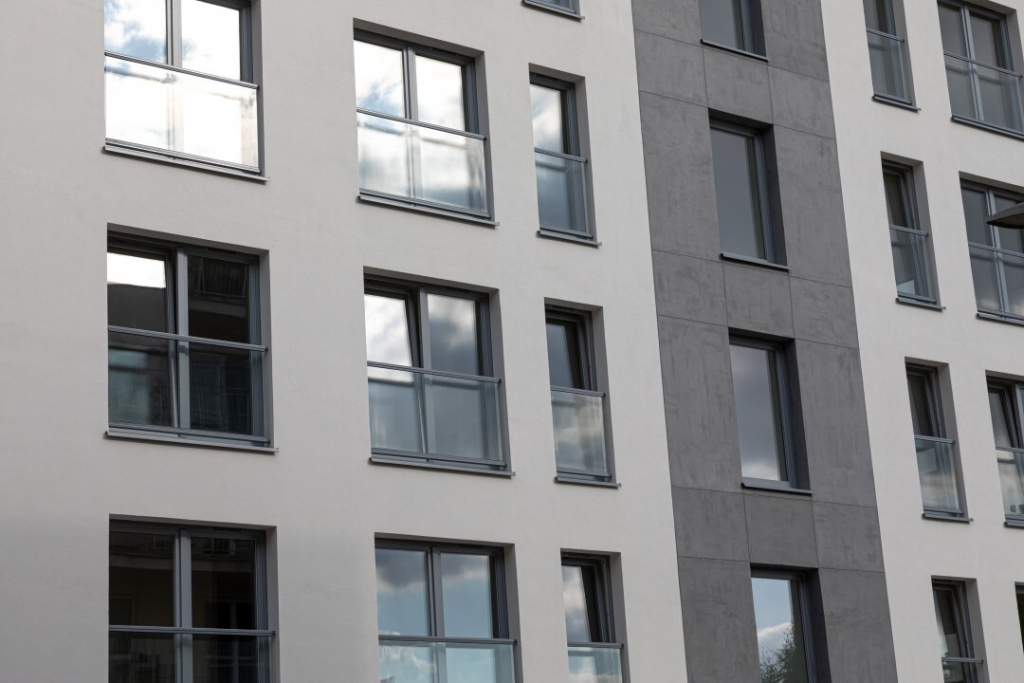- Products
- Systems
- Tools & Services
- Homepage
- ATLAS
- News
- Products
- ETICS - Why using all system components provided by the same manufacturer is so important?
News
ETICS – Why using all system components provided by the same manufacturer is so important?
Installation of ETICS (External Thermal Insulation Composite System) is a commonly used method of insulating walls of buildings in EU countries. Over sixty years of use of ETICS has proved that this method is a stable and suitable solution. From the user’s perspective, its installation is relatively quick and easy to perform. The factors influencing a possible deterioration of the thermal insulation properties of ETICS are well known. ETICS increases the energy efficiency of both new and existing buildings undergoing construction or renovation. The ETICS technology is constantly developing to improve its functionality and meet users’ expectations. Thermal insulation of external walls of the building reduces gas emissions, especially CO2, into the atmosphere. It is essential to mention that ETICS is a system solution and only as such, i.e., taking into account only the elements provided for in a given set of products, can it be commonly used. ETICS, like any construction product in the EU, is subject to assessment and verification of constancy of performance (AVCP) following the requirements of Regulation (EU) No 305/2011 of the European Parliament and of the Council of 9 March 2011 establishing harmonized conditions for the marketing of construction products and repealing Council Directive 89/106/EEC, commonly known as the CPR Regulation, the Construction Products Regulation.
According to the provisions of CPR, it is necessary to consider construction works comprehensively, i.e., with simultaneous consideration of all basic requirements. Each ETICS producer is obliged, under the law, to market the construction product, which is ETICS properly. Current legal conditions do not allow obtaining an assessment document for ETICS that combines different insulation materials on one facade. Other polish regulations, as technical conditions, allow in certain specific situations combining two other thermal insulation materials in high-rise buildings. However, such solutions are not and cannot currently be the subject of AVCP ETICS as a construction product made by its manufacturer.


Polish Association for Thermal Insulation Systems (SSO), Atlas is a member, decided to initiate large-scale ETICS fire tests. The reason for such a study was the emerging studies, called by their authors – guidelines, promoting the connection of various thermal insulation materials in the form of stripes between floors or frames around window openings. These studies, and the recommendations contained in them, are not reflected in legal regulations and are not supported by research results and construction practice. They treat ETICS selectively, considering this system only in terms of one of the basic requirements – fire safety. They do not refer to the systemic treatment of ETICS, including the aspects related to the durability of the construction product during operation. These so-called guidelines do not consider factors related to differences in the characteristics of combined thermal insulation materials and the consequences associated with such a combination. What is significant, the authors of these studies, referred to by them as guidelines, themselves admit that they do not have comprehensive knowledge about the proposed solutions, writing, for example: “The guidelines do not refer to other issues related to the performance properties of thermal insulation, e.g., durability, insulation thermal, water vapor diffusion, discoloration and other aspects, also aesthetic, as well as for marketing and use procedures, which may be the subject of separate documents and regulations.”
From the beginning of its existence, i.e., from 2003, SSO points to the need to treat ETICS as a system solution and consider ETICS – just like any construction product, in terms of all seven basic requirements. In 2020, SSO started the first part of a large research project to objectively verify the solutions for combining various thermal insulation materials on one facade. At the request of SSO, in the laboratories of the Łukasiewicz Research, Network – Institute of Ceramics and Building Materials in Cracow, a series of fire tests of insulated façades was carried out using two thermal insulation materials – EPS and MW on a large scale (four systems/research walls) on one wall.

In 2021, the first research results occurred in the Materiały Budowlane monthly magazine. At the end of January this year, the article presenting the comprehensive results of this research project was published. The publication by the research group from the Łukasiewicz Research Network – ICiMB appeared in the Sustainability journal (IF= 3.251, 100 points MEiN). It is available at: https://www.mdpi.com/2071-1050/14/3/1224. What is particularly worth emphasizing is that mentioned article has appeared in a special issue of the Sustainability edited by our colleague from Atlas, Dr. Bartosz Michałowski. The special issue is entitled: External Thermal Insulation Composite Systems (ETICS): Sustainable Technology for the Growth of Resource-Efficient and Competitive Economy. Dr. Michałowski is serving as a Guest Editor of the SI of Sustainability.
You can read more about the Special Issue of Sustainability on ETICS at: https://www.mdpi.com/journal/sustainability/special_issues/ETICS










